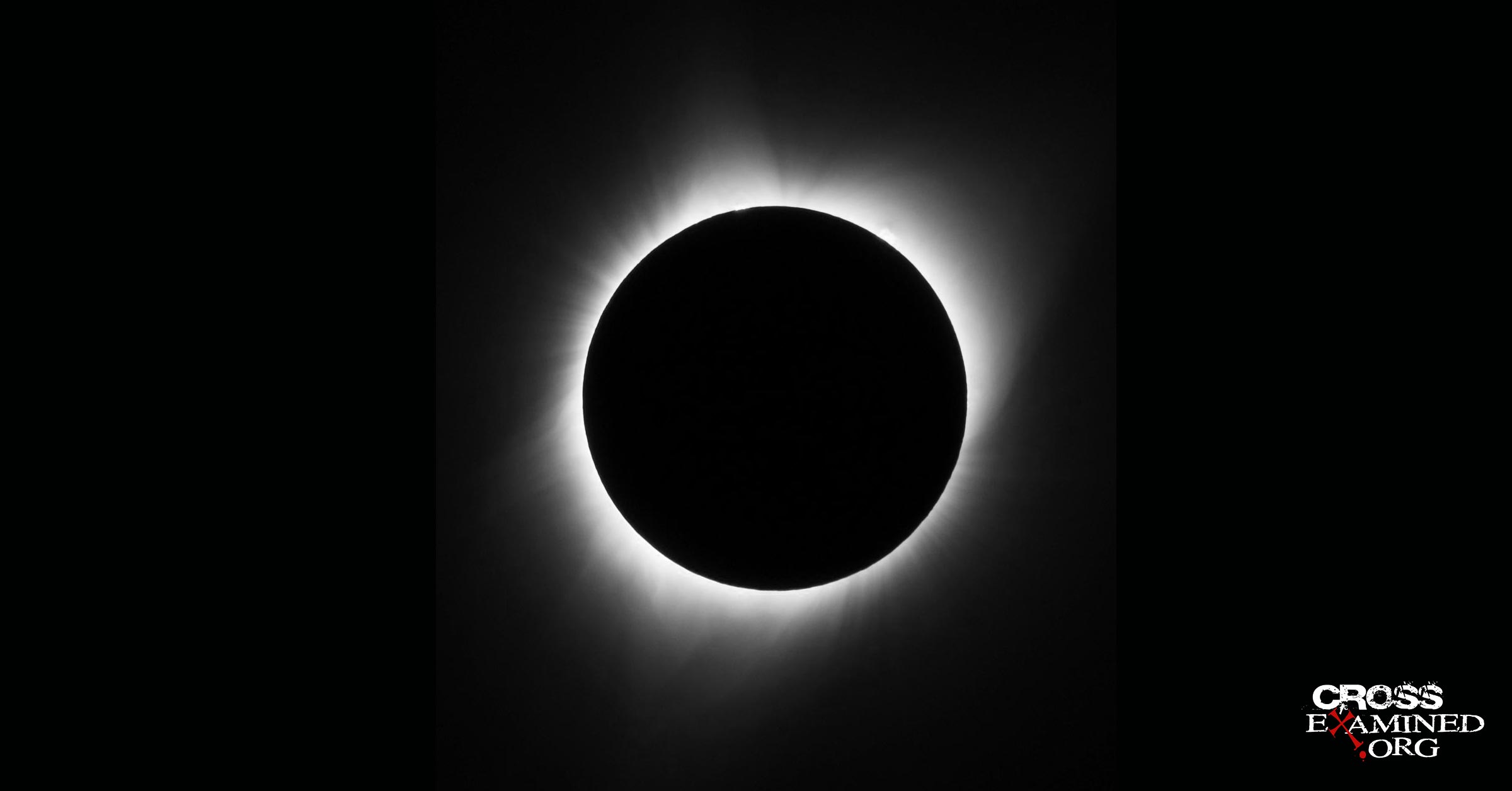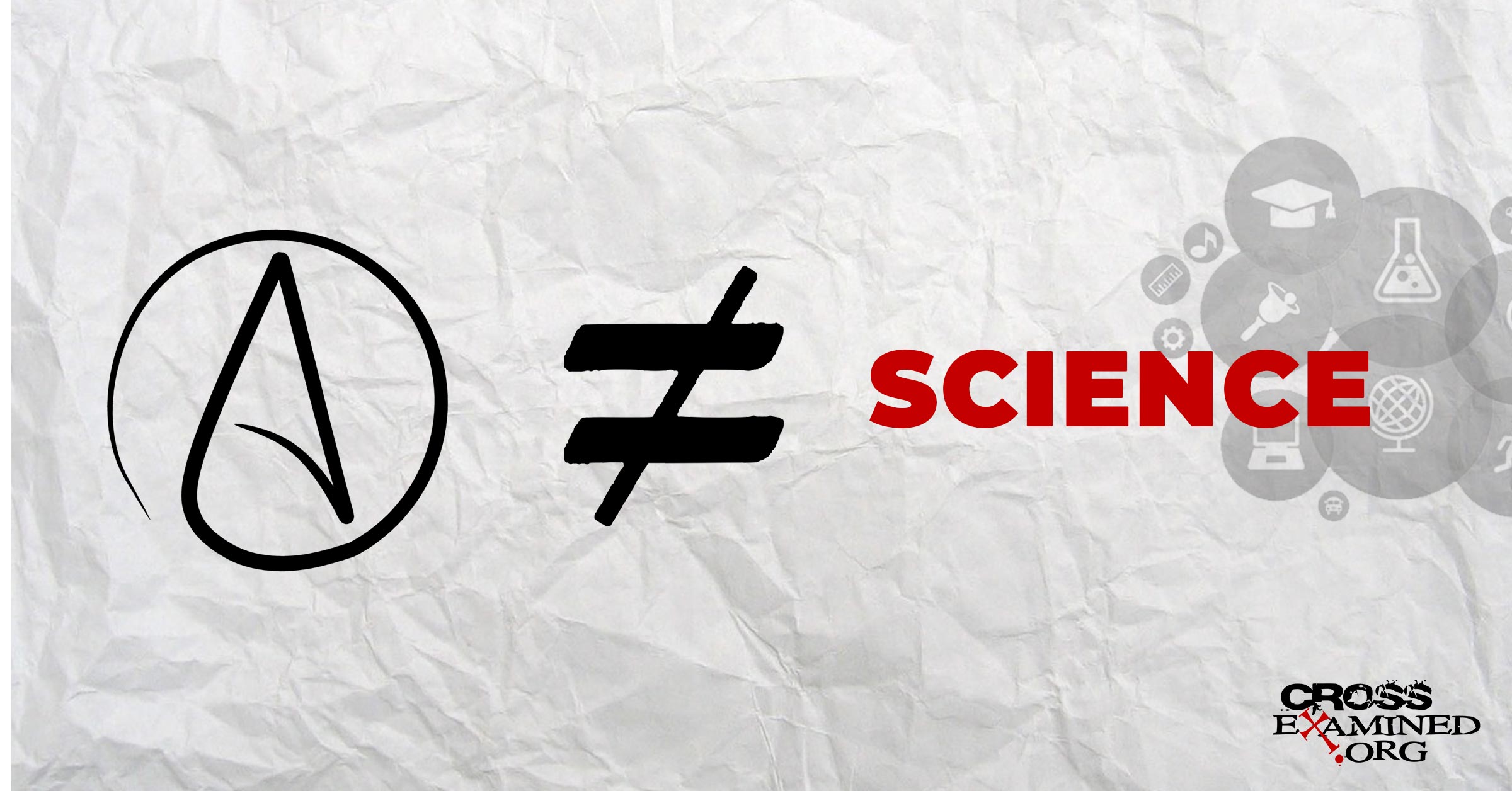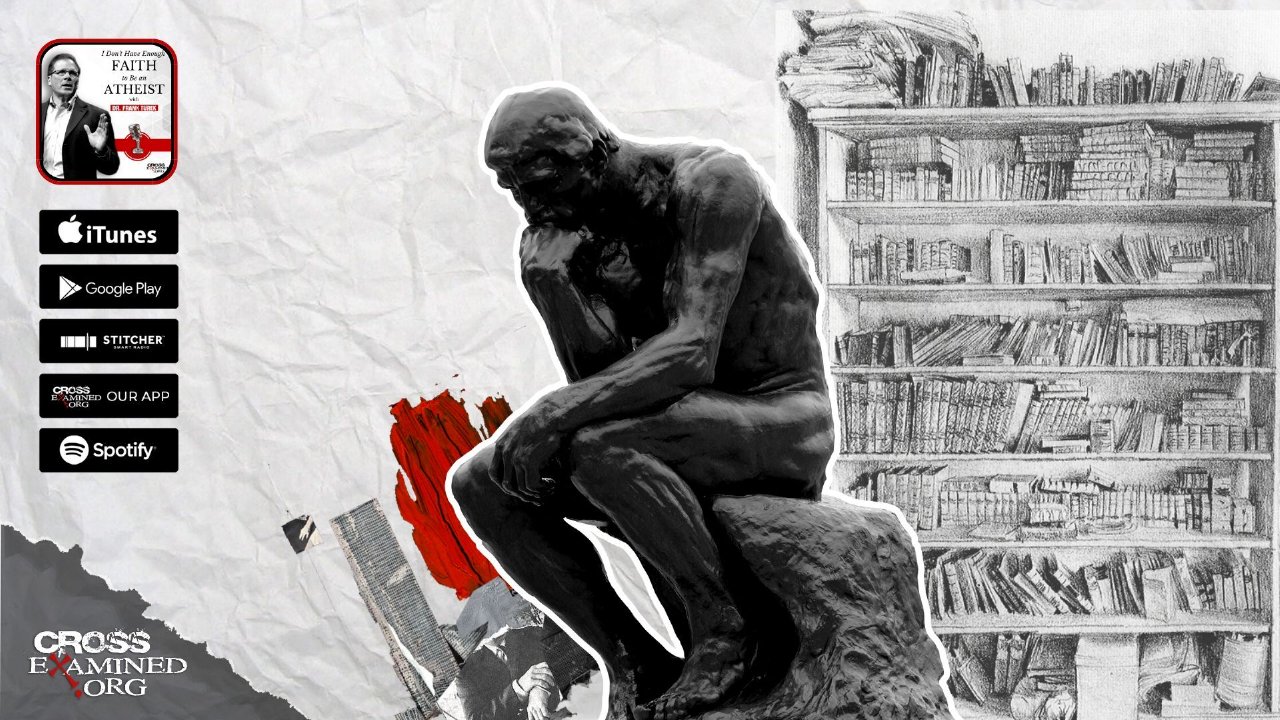By Erik Manning
The apostle Paul said that if Christ hasn’t risen, Christianity is a sham. (1 Corinthians 15:17) Many atheists agree and will happily point to the gospel accounts. Just how seriously should they take the claim of the resurrection? After all, aren’t the accounts riddled with contradictions? How can they possibly be trusted?
Historians don’t normally conclude that just because individual accounts have apparent contradictions that the event in question didn’t occur. But let’s allow that to pass for now. I think the majority of the discrepancies that critics bring up can be easily resolved. Here’s a list of four of the most popular contradictions in the resurrection account that skeptics like to point to.
#1. HOW MANY WOMEN WERE AT THE TOMB OF JESUS?
How many women came to the tomb Easter morning? Was it one, as told in John? Two (Matthew)? Three (Mark)? Or more (Luke)?…
Atheist blogger Bob Seidensticker
LET’S LOOK AT THE TEXTS
“On the first day of the week, Mary Magdalene came to the tomb early, while it was still dark. She saw that the stone had been removed from the tomb.” (John 20:1)
“After the Sabbath, as the first day of the week was dawning, Mary Magdalene and the other Mary went to view the tomb.” (Matthew 28:1)
“When the Sabbath was over, Mary Magdalene, Mary the mother of James, and Salome bought spices, so that they could go and anoint him.” (Mark 16:1)
“On the first day of the week, very early in the morning, they came to the tomb, bringing the spices they had prepared…Mary Magdalene, Joanna, Mary the mother of James, and the other women with them were telling the apostles these things.” (Luke 24:1,10)
Whoa there! On the face of it, you can see why skeptics would point to these passages to discredit the gospels. It seems like they can’t get their details straight. But are these accounts really so contradictory? Not really.
“NEVER READ ONE BIBLE VERSE”
It’s a bit amusing that Bob thinks that because John said that Mary Magdalene came to the tomb, he’s implying that others were not present. All we need to do is to keep reading to see that isn’t the case at all. In the very next verse, John says: “So she went running to Simon Peter and to the other disciple, the one Jesus loved, and said to them, “They’ve taken the Lord out of the tomb, and we don’t know where they’ve put him!” (John 20:2)
Wait a second. Where did this we come from? In passing, Mary Magdelene’s own words clearly show that there were other women. John reporting this implies that he’s well aware that there were other women at the tomb. No bludgeoning required. As Greg Koukl has famously said, “never read a Bible verse.” You have to keep reading and get the context before making assumptions about the text. Otherwise, it would seem that you’re either looking for a negative verdict or you’re just trying to fleece someone.
THE SKEPTIC’S BAD ASSUMPTIONS
As for the other accounts, why assume that each gospel account is supposed to give us a complete, detailed list of the women? Luke explicitly says that there were others that he didn’t name. In no gospel did it say these were the women who came to the tomb and there was no one else.
There’s no contradiction here unless you bring that assumption to the text. Selecting to name some women is not an automatic denial that there were no others. If I say I went to the store with my wife last night, I’m not automatically excluding the fact that I brought my four kids with me. I just left out a detail. So what?
#2 WAS THE TOMB OPENED OR CLOSED WHEN THE WOMEN ARRIVED?
“Was the stone already rolled away when they arrived at the tomb (Mark, Luke, and John), or explicitly not (Matthew)?”
Bart Ehrman, How Jesus Became God
LET’S LOOK AT THE TEXTS OURSELVES
And they were saying to one another, “Who will roll away the stone for us from the entrance of the tomb?” And looking up, they saw that the stone had been rolled back—it was very large. (Mark 16:3-4)
And they found the stone rolled away from the tomb…(Luke 24:2)
Now on the first day of the week, Mary Magdalene came to the tomb early, while it was still dark, and saw that the stone had been taken away from the tomb. (John 20:1)
So far all Mark, Luke, and John say that the tomb was open when the women found it. Now here’s Matthew’s version:
At the end of the sabbath, as it began to dawn toward the first day of the week, came Mary Magdalene and the other Mary to see the sepulcher. And, behold, there was a great earthquake: for the angel of the Lord descended from heaven, and came and rolled back the stone from the door, and sat upon it. His countenance was like lightning, and his raiment white as snow: And for fear of him the keepers did shake, and became as dead men. (Matthew 28:1-4)
So far it looks like Bart and the critics have a good point.
GETTING A GRIP ON THE GREEK
So what’s going on here? Is Matthew signifying that the women saw the angel coming down and rolling the stone away? If Matthew comes after Mark, then it feels like he’s adding an extra layer of supernatural ad hoc. While it makes the account sound more impressive, we now get this contradiction.
But let’s reconsider what Matthew says. We’re introduced to the passage about the angel by the Greek participle γὰρ (gar). Strong’s Greek Concordance defines it as: “For. A primary participle; properly assigning a reason.” In other words, it exists to explain the earthquake and set of circumstances as the women found them.
As philosopher Tim McGrew points out, “Matthew uses an aorist participle, which could be (and in some versions is) translated with the English past perfect: “… for an angel of the Lord had descended …”
One such translation is Weymouth, who phrases Matthew 28:2 as follows: “But to their amazement, there had been a great earthquake; for an angel of the Lord had descended from Heaven, and had come and rolled back the stone, and was sitting upon it.”
And here’s Young’s Literal Translation, which is about as a word-for-word Greek translation you can get: “and lo, there came a great earthquake, for a messenger of the Lord, having come down out of heaven, having come, did roll away the stone from the door, and was sitting upon it”
So Matthew isn’t claiming that the women saw the angel descend or that they saw the guards get knocked out. It’s not in the text. It seems like the critics are looking for fault here.
OK, BUT WHERE IS MATTHEW GETTING HIS INFO FROM?
But now a question arises. If the women didn’t tell them this story about the stone’s rolling away and the guards falling out, who did? That’s a fair question.
While can’t say for sure, we can venture a safe guess here. In Matthew 28:11-15 we find out that the author had some info about the guards. What happened to them could have come from the same source — perhaps one of the guards themselves.
Matthew 28:2-4 gives us an explanation for the women at the tomb found when they got there. And that is the stone rolled away and no guards. This just isn’t meant to be a description of what the women saw. The stone moved before they got there, and that seems to be what Matthew is communicating when properly read.
#3. DID THE WOMEN AT THE TOMB OF JESUS SEE A MAN AT THE TOMB, TWO MEN, OR TWO ANGELS?
“Did they see a man, did they see two men, or did they see an angel? It depends on which gospel you read.“
Bart Ehrman (The Craig-Ehrman debate)
AGAIN, LET’S LOOK AT THE TEXTS IN QUESTION:
Mark 16:5-6: “And entering the tomb, they saw a young man sitting on the right side, dressed in a white robe, and they were alarmed. And he said to them, …”
Matthew 28:5: “But the angel said to the women…”
Luke 24:4: “While they were perplexed about this, behold, two men stood by them in dazzling apparel…”
John 20:11-13: “But Mary stood weeping outside the tomb, and as she wept, she stooped to look into the tomb. And she saw two angels in white, sitting where the body of Jesus had lain, one at the head and one at the feet.”
So is this a major difference like Bart and other skeptics claim? Nah. Not if you’ve read the rest of the Bible. Angels often appear to humans as men. Let’s look at just a few texts to prove this out:
6 TIMES IN THE BIBLE WHERE ANGELS APPEAR AS MEN
- When Abraham was sitting by the oaks of Mamre, “he lifted up his eyes and looked, behold, three men were standing opposite him” (Genesis 18:1-2). These visitors in the very next chapter are called angels. (Genesis 19:1)
- Jacob wrestled with the man until daybreak in Genesis 32:22-32. We read in Hosea 12:4 that he wrestled with the Angel of the Lord.
- Joshua encountered the “captain of the host of the LORD” who was called “a man” (Joshua 5:13-15).
- Here again, we see the same thing in Judges: “And God listened to the voice of Manoah, and the angel of God came again to the woman as she sat in the field. But Manoah her husband was not with her. So the woman ran quickly and told her husband, “Behold, the man who came to me the other day has appeared to me.” (Judges 13:9-10)
- Daniel had visionary experiences where he describes his angelic visitor as “one in the likeness of the children of man”. (Daniel 10:16-18)
- And finally, Hebrews 13:2 tells us that “Do not neglect to show hospitality to strangers, for thereby some have entertained angels unawares.”
Because of medieval, we picture angels as babies or women with wings on their back floating on white clouds. But if it’s possible to entertain angels unawares as the writer of Hebrews says, then they can look just like a human being.
HOW MANY ANGELS WERE THERE?
This shouldn’t be that hard to figure out. Wherever there are two angels, there is always at least one. That’s just an unfailing principle of math. It’s Matthew and Mark who focus on the one who spoke. They don’t mention the other. But omission itself doesn’t equal denial. There is no account saying that there was one and no other.
I mean, we’ve all experienced this before, haven’t we? I’m thinking of my own life for certain job interviews I had. There were two managers in the room interviewing me for a promotion, but my focus was only on the one who was asking me questions. When talking about the interview later with others, me describing the questions and body language of manager Steve wouldn’t mean that manager Suzy wasn’t also in the room with her head down, taking notes.
#4. THE WOMEN SPREAD THE WORD OF THE EMPTY TOMB (OR DID THEY?)
In the other gospels, women discovered the empty tomb of Jesus and returned to tell the others:
“The women hurried away from the tomb, afraid yet filled with joy, and ran to tell his disciples.” (Matthew 28:8).
“When they came back from the tomb, they told all these things to the Eleven and to all the others” (Luke 24:9).
Mark tells us the women kept it hush-hush:
“Trembling and bewildered, the women went out and fled from the tomb. They said nothing to anyone because they were afraid.” (Mark 16:8)
That’s how the original version of the gospel of Mark ended.
BUT DOESN’T MARK 16 HAVE TWENTY VERSES?
Now some of you might be thinking to yourself: “Whoa. Hold up! Doesn’t Mark 16 have more than 8 verses? What about “Go ye into all the world, and preach the gospel to every creature,” and that strange stuff about drinking poison and handling snakes that we find in the ending of Mark?
Seemingly strange statements aside, I’m not at all here to argue against the inspiration of Mark 16:9-20. But most scholars believe that the original ending of Mark ends at verse 8. Unless you’re reading from the King James Version, most translations alert us to the fact that verses 9-20 are not in the earliest manuscripts. Here’s a sampling:
ESV : [Some of the earliest manuscripts do not include 16:9–20.]
NIV : [The earliest manuscripts and some other ancient witnesses do not have verses 9–20.]
CSB : [Some of the earliest mss conclude with 16:8.]
NLT : [The most ancient manuscripts of Mark conclude with verse 16:8. Later manuscripts add one or both of the following endings.]
These are all fairly conservative versions of the Bible. There’s no liberal conspiracy happening here. You can still believe verses 9-20 are historically reliable and even inspired. But nearly all textual specialists agree that the long ending of Mark wasn’t part of the original text. This gives us an apparent contradiction about what the women said after discovering the empty tomb.
LETTING THE SKEPTICS SPEAK
“One point, in particular, seems to be irreconcilable. In Mark’s account, the women are instructed to tell the disciples to go meet Jesus in Galilee, but out of fear, they don’t say a word to anyone about it.”
Jesus Interrupted. Page 49
Bart wants to create a contradiction by reading Mark as saying they never said a word to anyone. But is this the right reading of the passages?
IS MARK’S GOSPEL INCOMPLETE?
While the general scholarly consensus is that the long ending of Mark wasn’t originally there, what we’re not being told by the skeptics is that there’s debate regarding whether or not Mark meant to end it there or if the original text was cut off or left incomplete.
The late Bruce Metzger was a biblical scholar and longtime Princeton professor. He thought the original ending was cut off. Why did he believe that? Mark has a pattern of making blanket statements before adding an exception. Just take a look:
- “He did not let anyone accompany him except Peter, James, and John, James’s brother.” (Mark 5:37)
- “Suddenly, looking around, they no longer saw anyone with them except Jesus.” (Mark 9:8)
- “As they were coming down the mountain, he ordered them to tell no one what they had seen until the Son of Man had risen from the dead.” (Mark 9:9)
- “Why do you call me good?” Jesus asked him. “No one is good except God alone.” (Mark 10:18)
- “Now concerning that day or hour no one knows—neither the angels in heaven nor the Son —but only the Father.” (Mark 13:32)
This is a clear pattern in Mark. So how would we expect Mark to continue if Metzger is right and the text is broken off? It would probably look a lot like what we read in Matthew 28:8. Let’s combine the two passages: They said nothing to anyone because they were afraid, but departing quickly from the tomb…, they ran to tell his disciples the news.”
Ehrman did his doctoral dissertation under Metzger, so he has no justification in keeping his audience in the dark.
BUT WHAT IF MARK REALLY INTENDED ON STOPPING AT VERSE 8?
If you read Mark carefully in one sitting, you’ll find a common thread. After Jesus reveals himself in some way, he asks the witnesses to keep it on the down-low.
- “Then a man with leprosy came to him and, on his knees, begged him: “If you are willing, you can make me clean.” Moved with compassion, Jesus reached out his hand and touched him. “I am willing,” he told him. “Be made clean.” Immediately leprosy left him, and he was made clean. Then he sternly warned him and sent him away at once, telling him, “See that you say nothing to anyone; but go and show yourself to the priest, and offer what Moses commanded for your cleansing, as a testimony to them.” Yet he went out and began to proclaim it widely and to spread the news, with the result that Jesus could no longer enter a town openly.” (Mark 1:40-45)
- “They brought to him a deaf man who had difficulty speaking and begged Jesus to lay his hand on him. So he took him away from the crowd in private. After putting his fingers in the man’s ears and spitting, he touched his tongue. Looking up to heaven, he sighed deeply and said to him, “Ephphatha!” (that is, “Be opened!”). Immediately his ears were opened, his tongue was loosened, and he began to speak clearly. He ordered them to tell no one, but the more he ordered them, the more they proclaimed it.” (Mark 7:32-36)
- “But you,” he asked them, “who do you say that I am?” Peter answered him, “You are the Messiah.” And he strictly warned them to tell no one about him.” (Mark 8:29-30)
Reading this, we see that there’s a pattern silence, or requested silence, followed by proclamation. The silence never sticks. The whole punchline of Mark is that Jesus is the Messiah. Why we’d expect this pattern to stop seems silly. Just think about Mark’s Gospel as a whole for a minute:
- In the first half of Mark, everyone questions who Jesus is.
- In the middle, Jesus questions the disciples’ belief about Him.
- The second half tells how Jesus became the Messiah.
Mark is making a point about Jesus’ identity. Many Jews hoped that the Messiah would overthrow the Romans and rule as king, but as we read his gospel, we see that Jesus came to set up a kingdom different than their expectations. He came not to be served but to serve and give his life as a ransom for sin. (Mark 10:45) His kingdom would start small but gradually become great, like a mustard seed. (Mark 4:26-29)
With that in mind, it’s possible that the gospel’s abrupt ending is there to intentionally challenge us to decide if we believe Jesus is the Messiah. Mark could be making the understood assumption that of course, the women eventually said something, that’s why you’re reading about this – but what do you think? Who do you think Jesus is?
THE RESURRECTION ACCOUNTS AREN’T HOPELESSLY CONTRADICTORY
“[T]he sources [regarding Jesus’ resurrection] are hopelessly contradictory, as we can see by doing a detailed comparison of the accounts in the Gospels.”
Bart Ehrman, The Historical Jesus (2000), p. 90
Bart’s claim is a strong one, but we’ve seen from this quick review that this claim just isn’t true. These accounts can all rather easily be reconciled. There are other alleged discrepancies in the accounts, and so this isn’t meant to be an exhaustive rebuttal to every objection that could be made. But in examining a handful of the skeptics’ toughest objections, we’ve seen that the narratives are very far from being hopelessly contradictory. Don’t let the critics ruin your Easter.
Recommended resources related to the topic:
Early Evidence for the Resurrection by Dr. Gary Habermas (DVD), (Mp3) and (Mp4)
Cold Case Resurrection Set by J. Warner Wallace (books)
Did Jesus Rise from the Dead? By Dr. Gary Habermas (book)
Jesus, You and the Essentials of Christianity – Episode 14 Video DOWNLOAD by Frank Turek (DVD)
The Footsteps of the Apostle Paul (mp4 Download), (DVD) by Dr. Frank Turek
Erik Manning is a Reasonable Faith Chapter Director located in Cedar Rapids, Iowa. He’s a former freelance baseball writer and the co-owner of a vintage and handmade decor business with his wife, Dawn. He is passionate about the intersection of apologetics and evangelism.












